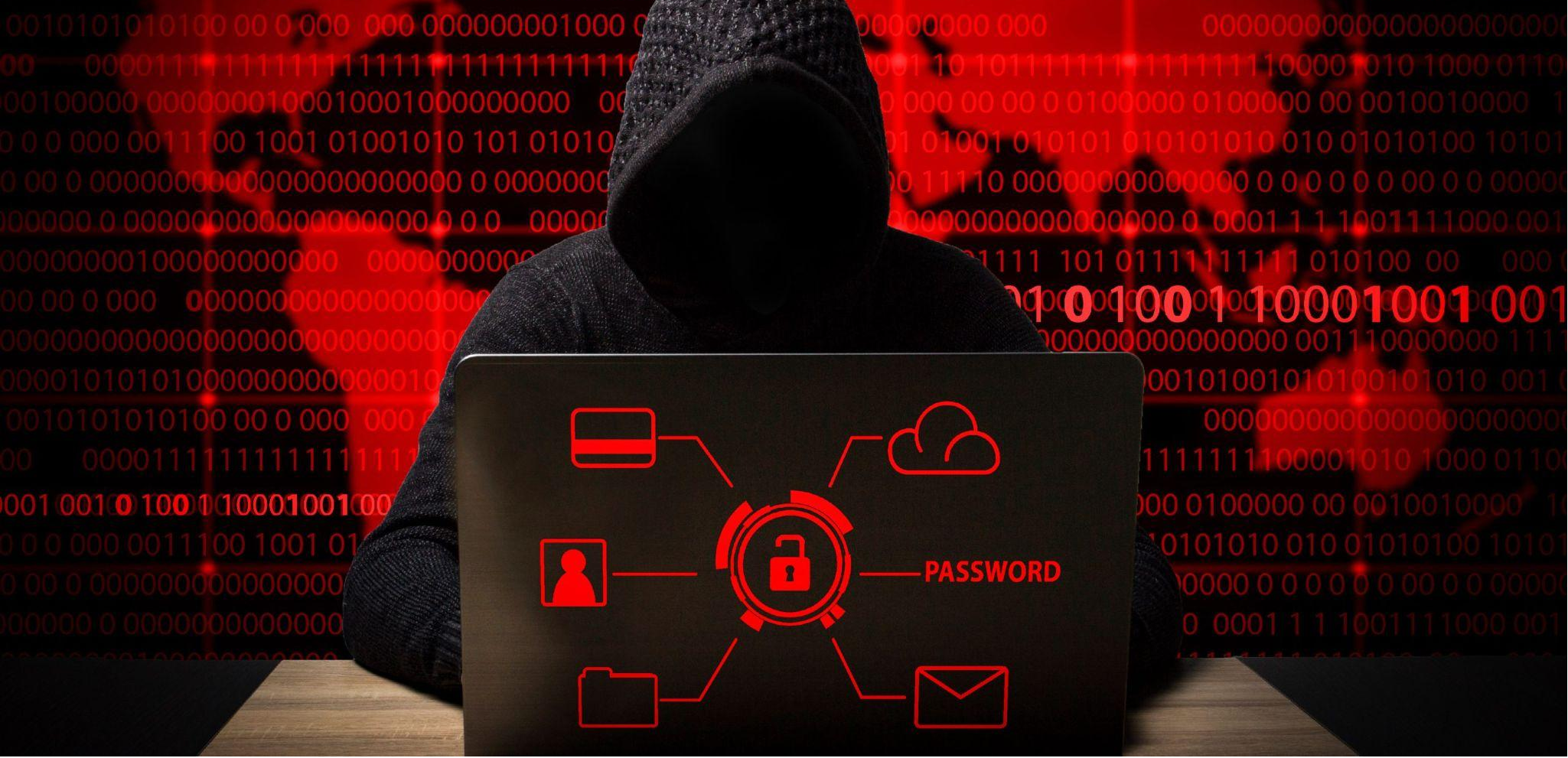

CYBER SECURITY : As more gamers move online, the potential for cyber attacks and security breaches also increases. In this digital era, cybersecurity is not just the concern of governments and corporations, it is also a vital aspect that every gamer should be conscious of.
In the dynamic world of online gaming, where virtual realms come alive, gamers find themselves engrossed in captivating adventures, strategic battles, and collaborative endeavors. However, amidst the exhilaration lies a realm of potential threats. The stakes are not just virtual possessions, but also personal information, privacy, and financial security.
The Cybersecurity Landscape for Gamers
Understanding the Threat Landscape
The online gaming landscape is a playground for both gamers and cyber criminals. Gamers are not just navigating through fantastical realms but traversing a vast digital expanse where their personal data is at risk. From malware-laden game mods to phishing attacks disguised as in-game messages, the threats are diverse and evolving. Cybercriminals are not only after in-
game assets but also sensitive personal information that can be exploited for financial gain.
Personal Data at Risk
One of the primary reasons gamers should care about cybersecurity is the abundance of personal data involved in online gaming. Usernames, email addresses, passwords, and even payment information are often linked to gaming accounts.
A breach in the security of these accounts can lead to identity theft, unauthorized access to other online services, and financial loss.
Financial Implications of Inadequate Cybersecurity

In-Game Purchases and Virtual Assets
The gaming industry has evolved beyond physical discs and cartridges. Today, in-game purchases and virtual assets are integral parts of the gaming experience. Whether it’s buying a new skin for a character, unlocking additional levels, or purchasing virtual currency, financial transactions are commonplace in the gaming world. Without proper cybersecurity measures, these transactions become vulnerable to hacking and fraudulent activities.
Real-World Consequences
The consequences of inadequate cybersecurity extend beyond the virtual realm. Stolen credit card information or unauthorized access to financial accounts can result in tangible financial losses for gamers. The virtual economy mirrors the real one, and the impact on a gamer’s wallet can be severe if security is compromised.
Privacy Concerns in the Virtual Playground

Voice and Video Communication
Modern online gaming often involves voice and video communication. Gamers connect with friends and strangers alike through voice chat platforms integrated into gaming consoles or external applications. Without robust cybersecurity measures, these conversations may become susceptible to eavesdropping, leading to privacy breaches and potential misuse of sensitive information.
Data Mining and Profiling
Gaming platforms collect a wealth of data on user behavior, preferences, and interactions. While this data is often used to enhance the gaming experience, it also poses privacy risks. Without adequate cybersecurity, this information can be exploited for targeted advertising, profiling, or even sold on the dark web.
The Rising Threat of Ransomware in Gaming

Ransomware Attacks on Gaming Platforms
In recent years, there has been a surge in ransomware attacks targeting gaming companies. These attacks not only disrupt gaming services but can also lead to the compromise of user data. Gamers may find themselves locked out of their accounts, with cybercriminals demanding ransom payments to restore access.
Protecting In-Game Progress
For many gamers, their in-game progress is a significant investment of time and effort. Ransomware attacks can jeopardize this progress by either locking them out of their accounts or threatening to delete in-game data. Cybersecurity measures become essential to safeguard the fruits of gamers’ dedication.
The Human Element: Social Engineering in Gaming

Phishing Attacks and Social Engineering
Cybercriminals often employ social engineering techniques to trick gamers into revealing sensitive information. Phishing attacks, disguised as official game communications or enticing offers, can lead unsuspecting gamers to divulge passwords or install malware.
Awareness of such tactics and adherence to cybersecurity best practices become crucial for a secure gaming experience.
Protecting the Gaming Community
The interconnected nature of online gaming means that a security breach for one gamer can have a cascading effect on the entire gaming community. Gamers should be vigilant not only for their sake but also to contribute to the collective security of the gaming community. Reporting suspicious activities and sharing cybersecurity awareness can create a safer environment for all.
Securing the Virtual Realm: Best Practices for Gamers
In the expansive universe of online gaming, cybersecurity is not an abstract concept but a tangible shield against potential threats. Gamers, the digital adventurers of the 21st century, must recognize the importance of safeguarding their virtual realms. From financial implications and privacy concerns to the rising threat of ransomware and social engineering tactics, the risks are diverse and ever-evolving.
By adopting cybersecurity best practices, staying informed about potential threats, and actively contributing to the security of the gaming community, gamers can transform into the guardians of the virtual realm. The gaming experience should be about joy, camaraderie, and achievement, not about navigating treacherous cyber landscapes.
As the gaming community continues to grow, the collective responsibility to ensure a secure and enjoyable virtual playground becomes even more critical.
Cybersecurity is not just a concern for governments and corporations; it is a shared responsibility that every gamer must embrace to protect their digital adventures and preserve the magic of the virtual world.
Use of Strong Passwords and Two-Factor Authentication
One of the fundamental steps in securing gaming accounts is the use of strong, unique passwords. Two-factor authentication adds an additional layer of security, requiring a second form of verification, such as a code sent to a mobile device. Implementing these measures significantly reduces the risk of unauthorized access.
Regular Software Updates and Antivirus Protection
Gaming platforms, whether on consoles or PCs, regularly release software updates that include security patches. Gamers should ensure that their gaming devices and associated software are up-to-date. Additionally, installing reputable antivirus software can provide an extra layer of defense against malware and other cyber threats.
Educating Oneself on Cybersecurity Best Practices
Knowledge is a powerful tool in the realm of cybersecurity. Gamers should invest time in educating themselves about common cyber threats, recognizing phishing attempts, and understanding best practices for online security. Awareness can go a long way in preventing falling victim to cyberattacks.
Important Safety Points for Gamers:
●Multi-Factor Authentication (MFA):Enabling MFA not only adds an extra layer of protection but also ensures that even if a password is compromised, unauthorized access is still thwarted.
●Virtual Private Networks (VPNs): Gamers can consider using VPNs to encrypt their internet connection, adding an additional layer of security and anonymity, especially when connecting to public Wi-Fi networks.
●Community-driven Security Initiatives:Online gaming communities can establish and promote security initiatives. This includes forums where gamers can share information about potential threats, discuss cybersecurity best practices, and
collectively work towards a safer gaming environment.
●Regular Security Audits: Periodic checks of gaming accounts and associated devices can help identify and address potential vulnerabilities promptly. Gamers can conduct personal security audits or use reputable tools designed for this purpose.
●Stay Informed about Game Security Updates: Game developers often release security patches and updates to address vulnerabilities. Gamers should stay informed about these updates and apply them promptly to enhance the security of their gaming experience.
●Secure Wi-Fi Networks: Using secure, password-protected Wi-Fi networks at home can prevent unauthorized access to gaming devices. Gamers should also be cautious when connecting to public Wi-Fi networks, using VPNs when necessary.
●In-Game Reporting Systems: Many online games have reporting systems for suspicious activities. Gamers should actively use these systems to report any unusual behavior, hacking attempts, or potential security threats to game developers.
By incorporating these additional measures into their cybersecurity arsenal, gamers can fortify their defenses against an ever-evolving landscape of cyber threats .
In conclusion, as technology continues to advance, gamers must evolve not only in mastering virtual challenges but also in safeguarding themselves from digital threats. The virtual world is an expansive realm waiting to be explored, and with the right cybersecurity mindset, gamers can ensure that their journeys remain secure, enjoyable, and free from the perils of the cyber frontier.
Level up your cybersecurity game today! Implement the strategies discussed to fortify your virtual fortress. Share this knowledge with your gaming community, contributing to a more secure and enjoyable online gaming experience for all. Together, let’s be the guardians our virtual realms deserve.
References
- Smith, J. (2022). “The Evolving Landscape of Cybersecurity Threats in Online Gaming.” Cybersecurity Journal, 15(2), 45-62.
- Cybersecurity and Infrastructure Security Agency (CISA). (2022). “Gaming Security Best Practices: A Guide for Gamers.” Retrieved fromhttps://www.cisa.gov/gaming-security-best-practices
- Federal Trade Commission (FTC). (2022). “Online Gaming: Tips for Protecting Your Personal Information.” Retrieved fromhttps://www.consumer.ftc.gov/articles/Online-Gaming
- Kaspersky Lab. (2022). “Ransomware in Gaming: A Growing Threat.” Retrieved fromhttps://usa.kaspersky.com/resource-center/threats/ransomware-in-gaming-a-growing-threat





